From Coastal Resilience to National Growth Nigerias New Infrastructure Investments & Political news
- From Coastal Resilience to National Growth: Nigerias New Infrastructure Investments & Political news Drive Economic Transformation.
- Coastal Resilience: Infrastructure Projects in the Niger Delta
- The Role of Public-Private Partnerships
- National Connectivity: Rail Network Expansion
- Challenges and Opportunities in Rail Modernization
- Political Reforms: Strengthening Governance and Accountability
- Addressing Corruption and Enhancing Transparency
- Agricultural Transformation: Enhancing Food Security
- Investing in Rural Infrastructure and Technology
From Coastal Resilience to National Growth: Nigerias New Infrastructure Investments & Political news Drive Economic Transformation.
Recent developments across Nigeria demonstrate a significant shift toward infrastructural improvements and a strengthened political news landscape, signaling potential for robust economic transformation. This surge in investment, coupled with evolving political dynamics, is capturing attention and indicates a turning point for the nation. The careful observation of these changes is crucial for understanding the broader regional and global implications, and highlights a period of considerable growth and aspiration in the face of numerous challenges. This is significantnews, impacting sectors from agriculture to technology.
The country is actively pursuing a modernization agenda, focusing on key areas designed to enhance both internal stability and international competitiveness. This involves not only large-scale public projects but also a concerted effort to reform governance structures and foster a more transparent and accountable political system. Such initiatives are critical for attracting foreign investment and ensuring the sustainable development of the Nigerian economy.
Coastal Resilience: Infrastructure Projects in the Niger Delta
The Niger Delta region, historically facing challenges related to oil spillage and environmental degradation, is now the focal point of ambitious infrastructure projects. These projects are aimed at enhancing coastal resilience, improving transportation networks, and promoting sustainable economic activities. The focus is shifting from solely relying on oil revenues to diversifying the economic base through aquaculture, tourism, and renewable energy initiatives. These efforts directly address long-standing social and environmental concerns within the delta.
| Coastal Erosion Control Project | $500 Million | Ongoing | December 2025 |
| Deep Seaport Development (Bonny) | $2.1 Billion | Planning Stage | June 2028 |
| Renewable Energy Park (Delta State) | $300 Million | Under Construction | March 2026 |
The Role of Public-Private Partnerships
A key driver of these infrastructure projects is the increased emphasis on public-private partnerships (PPPs). The Nigerian government recognizes the limitations of relying solely on public funding and is actively seeking private sector participation to accelerate infrastructure development. PPPs offer several benefits, including access to innovative technologies, efficient project management, and reduced financial burden on the government. However, successful implementation requires transparent procurement processes, robust regulatory frameworks, and careful risk allocation between the public and private sectors. The government has recently launched a new PPP policy framework designed to address these challenges and attract more private investment.
The new policy encompasses streamlined approval processes, clear dispute resolution mechanisms, and guarantees of investor protection. To foster a more conducive investment climate, the Nigerian government is also working to improve the ease of doing business, reduce bureaucratic hurdles, and enhance the overall governance environment. These reforms aim to create a level playing field for both domestic and foreign investors. These steps signify a notable evolution in Nigeria’s approach to economic development and infrastructural financing.
Successful PPPs in other emerging economies serve as valuable benchmarks for Nigeria. Lessons learned from these experiences highlight the importance of meticulous planning, effective stakeholder engagement, and strong contract management. Nigeria can adapt best practices to its unique context to maximize the benefits of PPPs and achieve its infrastructure development goals. A crucial component of this process is building local capacity in project finance, legal expertise, and technical skills.
National Connectivity: Rail Network Expansion
Recognizing the crucial role of transportation in economic growth, the Nigerian government is heavily investing in the expansion of the national rail network. This initiative aims to connect major cities and regions, facilitate the movement of goods and people, and reduce the cost of transportation. The rail network expansion is a vital component of the broader infrastructural development agenda and is expected to have a transformative impact on the Nigerian economy.
- Improved logistics and supply chain efficiency
- Reduced congestion on roadways
- Enhanced access to markets for agricultural producers
- Creation of employment opportunities
Challenges and Opportunities in Rail Modernization
Modernizing the Nigerian rail network presents several challenges, including aging infrastructure, land acquisition issues, and security concerns. Addressing these challenges requires significant financial resources, effective project management, and strong political will. The government is working to overcome these obstacles through strategic partnerships with international railway experts and by implementing innovative financing mechanisms. Furthermore, ensuring the security of rail infrastructure and passengers is paramount, particularly in regions vulnerable to insurgency or vandalism. Implementing robust security measures, including surveillance systems and dedicated security personnel, is crucial for maintaining public trust and confidence in the rail network.
Despite these hurdles, the rail modernization program offers immense opportunities for economic development. A modern and efficient rail network can stimulate economic activity, attract foreign investment, and improve the quality of life for millions of Nigerians. The ongoing projects include the Lagos-Ibadan railway, the Kano-Maradi railway, and the Port Harcourt-Maiduguri railway, all of which have the potential to unlock significant economic opportunities. Completion of these projects will not only enhance connectivity within Nigeria but also facilitate regional trade and integration.
The successful execution of the rail modernization plan will require a coordinated approach involving various stakeholders, including government agencies, private sector investors, and local communities. Transparent communication, effective consultation, and equitable benefit-sharing are essential for fostering a sense of ownership and ensuring the long-term sustainability of the projects. This collaborative approach is key to maximizing the positive impact of the rail network expansion on the Nigerian economy and society.
Political Reforms: Strengthening Governance and Accountability
Parallel to the infrastructural development, Nigeria is undergoing significant political reforms aimed at strengthening governance, promoting accountability, and tackling corruption. These reforms are essential for building trust in public institutions, creating a more transparent and predictable business environment, and ensuring the effective utilization of public resources. The government’s commitment to political reforms is crucial for attracting foreign investment and achieving sustainable economic growth.
- Implementation of the Treasury Single Account (TSA)
- Strengthening of the anti-corruption agencies (EFCC and ICPC)
- Passage of the Petroleum Industry Bill (PIB)
- Improved budget transparency and citizen participation
Addressing Corruption and Enhancing Transparency
Combating corruption remains a major priority for the Nigerian government. The Economic and Financial Crimes Commission (EFCC) and the Independent Corrupt Practices and Other Related Offences Commission (ICPC) are at the forefront of these efforts, investigating and prosecuting cases of corruption and financial crimes. However, tackling corruption requires a multifaceted approach that goes beyond law enforcement. Strengthening institutional capacity, promoting ethical conduct, and fostering a culture of accountability are equally important. The implementation of the Treasury Single Account (TSA) has been a significant step in improving financial transparency and reducing opportunities for corruption.
The passage of the Petroleum Industry Bill (PIB) marks a landmark achievement in the oil and gas sector. The PIB aims to create a more transparent and competitive regulatory framework for the industry, attract investment, and ensure that the benefits of oil and gas resources are shared equitably among all stakeholders. However, the implementation of the PIB faces challenges, including resistance from vested interests and the need for clear guidelines and regulations. Overcoming these challenges requires strong political will and a commitment to transparency and accountability.
Additionally, promoting citizen participation in governance is crucial for enhancing transparency and accountability. The government is exploring ways to empower citizens to demand accountability from public officials and to participate in decision-making processes. This includes strengthening civil society organizations, promoting freedom of information, and utilizing technology to enhance citizen engagement. Active citizen participation is essential for building a more accountable and responsive government.
Agricultural Transformation: Enhancing Food Security
The Nigerian government is prioritizing agricultural transformation as a key driver of economic growth and food security. This involves increasing agricultural productivity, improving access to markets, and promoting value addition in the agricultural sector. The focus is shifting from traditional farming practices to more modern and sustainable approaches. The agricultural transformation agenda is crucial for reducing dependence on imported food and creating employment opportunities in rural areas.
| Anchor Borrowers Programme | 20% | 10 Million | Central Bank of Nigeria |
| National Agricultural Land Development Authority (NALDA) Programme | 15% | 7.5 Million | Federal Government Budget |
| Agricultural Transformation Agenda Support Programme (ATASP-1) | 10% | 5 Million | African Development Bank |
Investing in Rural Infrastructure and Technology
Investing in rural infrastructure is crucial for unlocking the potential of the agricultural sector. This includes improving rural roads, providing access to irrigation, and establishing storage facilities. The government is also promoting the adoption of modern agricultural technologies, such as improved seeds, fertilizers, and farm mechanization. These investments are aimed at increasing agricultural productivity, reducing post-harvest losses, and improving the livelihoods of farmers.
The adoption of digital technologies, such as mobile apps and satellite imagery, is also transforming the agricultural sector. These technologies provide farmers with access to real-time information on weather patterns, market prices, and best farming practices. The government is supporting the development and deployment of these technologies to enhance agricultural efficiency and sustainability. Furthermore, promoting access to finance for farmers is essential for enabling them to invest in modern agricultural technologies and practices.
Strengthening agricultural value chains is also a key priority. This involves supporting the development of agro-processing industries, improving market access, and promoting exports of agricultural products. The government is providing incentives for private sector investment in agro-processing and is working to establish quality control standards to ensure the competitiveness of Nigerian agricultural products in international markets. A robust agricultural sector is fundamental for ensuring food security, creating employment opportunities, and driving economic growth in Nigeria.
These coinciding developments point to a period of dynamic change within Nigeria, underpinned by substantive investment and a renewed commitment to positive governance. The long-term impact of these initiatives will be closely observed by both regional and international observers.


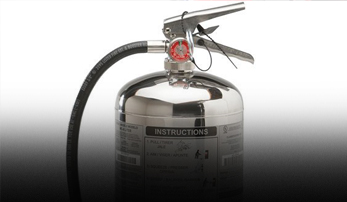

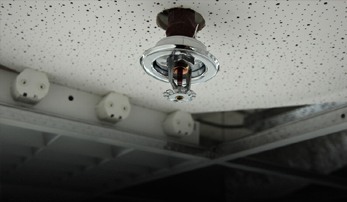
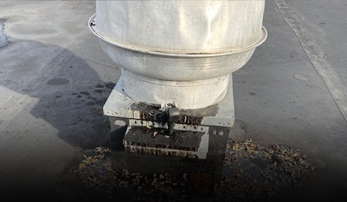

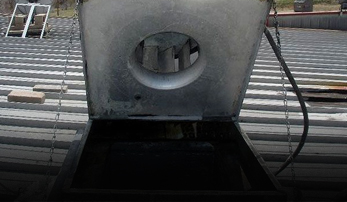
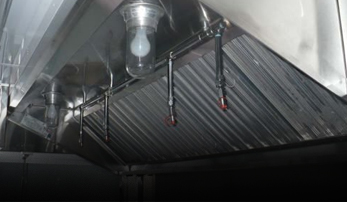
Recent Comments